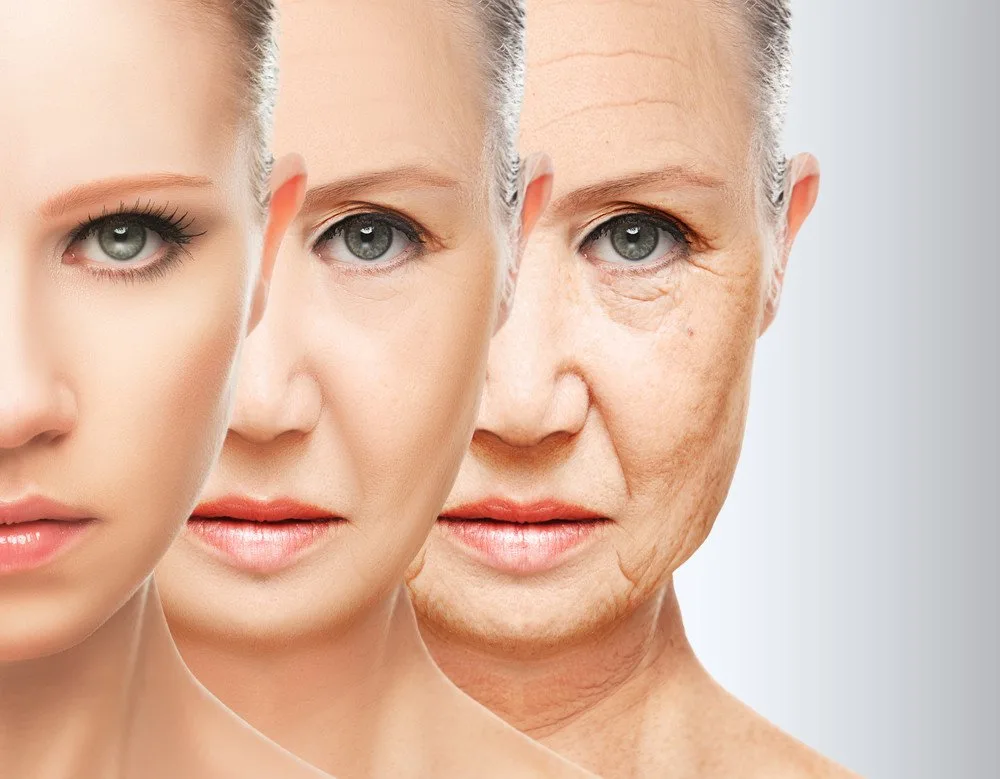The science of calorie restriction and autophagy
So many things happen as we age that we can see—the hair grays or fall out, the skin wrinkles, the extra pounds accumulate, and the body slows. But, many things happen inside that we can’t see: for example, the risk of disease increases—the average fifty-year-old has a higher risk of heart disease than the average five-year-old.
Caloric restriction (CR) – of which fasting, temporary or intermittent, is a type – is the long-term reduction of calorie intake (eating a bit less for a long while) without malnutrition.
CR has been shown to boost longevity. It reduces the risk of disease and other age-associated health effects.
Many of the positive health benefits are realized because calorie restriction activates cellular processes not usually stimulated when food is readily available. One such process, autophagy, a recycling mechanism that “cleans up” the obsolete, damaged, or otherwise unneeded cell contents – via the cell’s very own Marie Kondo’s – plays a prominent role. Thank you, autophagic Marie’s!
How autophagy works
So, how do you feel when you adopt calorie restriction as a long-term health strategy? In one science-based study, non-obese, healthy adults who reduced their calorie intake by 15 to 25% for two years reported improved quality of life – including improved general health, sexual drive, and mood, and reduced tension. They also lost an average of 7.6 kilograms of, mostly body fat. Further findings from the trial also suggest improved resting metabolic rates and cognition.
Calorie restricting mimetics
Though the benefits are many and the process is simple, fasting is not without its difficulties (how do you eat 25% less pasta?), discomforts, and risks. And, some people simply can’t fast without negative consequences: Included in this group are those with hypothyroidism and older people with sarcopenia or low body weight for whom fasting would lead to frailty.
If autophagy is beneficial and what we want to induce, but not necessarily via fasting, then fasting mimetics, or foods and supplements that mimic or induce similar effects, could be the answer.
Although this longevity science is relatively new, the initial findings on caloric restriction mimetics (CRM) are promising. Like fasting, some CRMs activate autophagy, prolong life- and healthspan, and ameliorate a diverse array of disease symptoms. Among the confirmed CRMs is spermidine.
The science behind spermidine
One of the calorie-restricted mimics gaining more ground in longevity circles of late is spermadine. Spermidine is naturally produced by the body, but natural levels decrease as we age. Ingestion of spermidine contained in food or supplements can restore your levels to those of your youth. It is also well-tolerated and processed by the body.
The known health benefits of spermidine are many, including increasing lifespan, suppressing tumors and growth, improving the heart’s ability to protect itself from disease, and, on a beauty note, preventing grey hair; and these are only a few of its known effects. Central to its effectiveness is the induction of autophagy.
As the world of science studies CRMs, and spermidine to boost longevity, in particular, the good news keeps coming.
For example, in a study published in 2021, thirty healthy Japanese men ate one or two servings of ready-to-eat natto, a known dietary source of spermidine, every day for a year. When compared to a control group that did not modify their diets, a marker that increases with inflammation, LFA-1, was reduced.
This suggests that increased spermidine levels reduce inflammation, a known contributing factor to chronic disease.
CRM > CR
Though caloric restriction is undoubtedly effective, it is also difficult and not without risk. Supplementing your diet with CRMs like spermidine can be similarly effective, definitely easier, and probably more satisfying.
Spermidine can be found in many foods like the natto eaten in the above study; vegetables like green peas, corn, and pumpkin; and, perhaps easiest, can be taken as supplements.
Closing
Spermidine is an important calorie-restricted mimic that helps stimulate autophagy, which is an important recycling mechanism of the cell. Autophagy cleans out dysfunctional and damaged cells and regenerates through the creation of newer, healthier cells. Importantly, spermadine aids the autophagy process in a safe and effective way. So, grab a spermidine snack or supplement today and reap the longevity rewards!
Read more about spermadine here: Why Spermidine Is Great For Your Longevity
About the author
 Leslie Kenny is the founder of Oxford Healthspan. She is a Southern Californian entrepreneur and a graduate of both Berkeley and Harvard. Her life was turned upside down when diagnosed with lupus and rheumatoid arthritis in her 30s.
Leslie Kenny is the founder of Oxford Healthspan. She is a Southern Californian entrepreneur and a graduate of both Berkeley and Harvard. Her life was turned upside down when diagnosed with lupus and rheumatoid arthritis in her 30s.
When Leslie’s doctors told her lupus had a life expectancy of five years and that RA could only be managed, not cured, she set out to optimize her health as best she could, safely and, naturally. After several years of education and scientific exploration, she launched her own company and food-derived spermadine products, including Primeadine. Today, at age 56, Leslie is living proof that we can get better with age. Her full bio is listed in the author’s credentials below.




![women [longevity live]](https://longevitylive.com/wp-content/uploads/2020/01/photo-of-women-walking-down-the-street-1116984-100x100.jpg)










